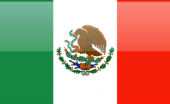Re Ian Bremmer 'Could third-party candidates upend the 2024 US election?' 3 April The current political movement in the USA…
Wednesday Night #1730
Written by Diana Thebaud Nicholson // April 27, 2015 // Wednesday Nights // 2 Comments
So many sad anniversaries commemorated over the past few days. The centenary of the Armenian genocide was remembered around the world. Even in Turkey there was acknowledgement from the Prime Minister, although in his message he stopped short of using the word genocide: “We once again respectfully remember Ottoman Armenians who lost their lives during the deportation of 1915 and share the pain of their children and grandchildren.” Kudos to Kyle Matthews It’s time for Turkey to acknowledge the Armenian Genocide for his work with Mayor Denis Coderre to organize the commemoration at City Hall.
And to Ken Matziorinis, president of AHEPA Canada for his message that underlines that “along with the Armenians, Pontian and Anatolian Greeks, Assyrians and Syriac Christians were also slaughtered by the Turks who have denied their responsibility for the ethnic and religious massacres that today can be called by only one name: Genocide.” (See Comment from Desmond Morton)
On the 25th, the 100th anniversary of the landings that signaled the beginning of the disastrous campaign of Gallipoli was remembered in Turkey, Britain, Newfoundland, and especially in Australia and New Zealand as Anzac Day. Moving tributes were paid to the brave soldiers who died in the ill-conceived attempt to reach Istanbul, paying the price for inept military decisions by the high command egged on by Winston Churchill. More about Gallipoli (See Comment from Desmond Morton)
The celebration of Israel Independence Day is a moveable feast, established according to the Hebrew Calendar. This year, it was April 23rd. Directly related is the Israeli Holocaust Remembrance Day –Yom HaShoah – which is fixed as eight days before Independence Day, while the Warsaw ghetto uprising of 1943 began on April 19th. It should be noted that International Holocaust Remembrance Day, as fixed by the UN is January 27th, the anniversary of the liberation of Auschwitz-Birkenau in 1945.
A more cheerful anniversary: Seventy-five years ago, on April 25th, Quebec women won the right to vote. Recognizing the anniversary, Quebec renamed its Equality Prize the Thérèse Casgrain Equality Prize, and also commemorated other women’s movement leaders, including Marie Lacoste-Gérin-Lajoie, Idola Saint-Jean and Marie-Claire Kirkland. “With this tribute, our government wants to honour this grand Quebecer who inspired so many women to get involved in public life,” said Premier Philippe Couillard in a statement.This somewhat compensates for the insulting move by the Harper government in 2010 when the Thérèse Casgrain Volunteer Award was replaced by the Prime Minister’s Volunteer Award, to be handed out in a ceremony each year presided over by Prime Minister Stephen Harper. And, yes, an image of Casgrain and her namesake volunteer-award medal also disappeared from Canada’s $50 bank note in 2012, replaced by the image of an icebreaker on a new currency series. Would that be one of the still undelivered icebreakers? On the flip side of Quebec news Premier wants to hear about Quebec’s English-speakers – “I appreciate when my colleagues who have constituents who are Quebecers of English expression bring us situations where we can do better, and we will,” Couillard said. Oh dear, we must explain ourselves.
The tragedy that struck in Nepal on Saturday has claimed over 3,200 lives. Many residents of Kathmandu, lost their homes. And others are afraid to return to their homes – especially after strong aftershocks hit the region on Sunday. The devastation will not be fully measured for days or weeks as access to remote areas is blocked. The BBC reports: At least four out of seven Unesco World Heritage sites in the Kathmandu valley – three of them ancient city squares – were severely damaged. Nepali Times editor Kunda Dixit told the BBC that the destruction was “culturally speaking an incalculable loss”, although he said monuments could be rebuilt. In Bhaktapur, until now Nepal’s best preserved old city, reports say half of all homes have been destroyed and 80% of temples damaged. There are also fears for Nepal’s ‘invisible’ (undocumented and stateless) Tibetan refugees.
The quake cannot, apparently, be blamed on climate change. According to the New York Times, “More than 25 million years ago, India, once a separate island on a quickly sliding piece of the Earth’s crust, crashed into Asia. The two land masses are still colliding, pushed together at a speed of 1.5 to 2 inches a year. The forces have pushed up the highest mountains in the world, in the Himalayas, and have set off devastating earthquakes.”
Meanwhile, the finger-pointing begins: The Earthquake Nepal Saw Coming — Political gridlock and substandard infrastructure left the country particularly vulnerable to devastation.
‘The Wretched of the Earth’ Are on the Move as Migrants. The heart-wrenching story continues. The drowning deaths of thousands of migrants in the Mediterranean over the past months have searingly illustrated the inability of the European community to demonstrate solidarity between member states and show a commitment to humanitarianism in the face of desperate people arriving in its backyard. It is now estimated that for every 1,000 migrants that are known to have crossed the Mediterranean, more than 46 lose their lives in shipwrecks. The actual number might even be higher. Al Jazeera looks at the principal departure point for African refugees, Libya grapples with migration crisis. CBC’s David Common puts a face on some of the migrants on Sunday’s The National (starts at 24:15).
Reuters summarizes the escalating Greek crisis. If Greece falls, no one wants their prints on the murder weapon
If Athens runs out of cash and defaults in the coming weeks, as seems increasingly possible, no one wants to be accused of having pushed it over the edge or failed to try to save it.
Greece’s leftist government has already identified its culprit of choice – Germany, Europe’s main paymaster, accused of having inflicted toxic austerity policies on Greeks, causing a “humanitarian crisis”.
Euro zone governments are preparing the ground to blame the novice government of Prime Minister Alexis Tsipras for having blustered, obstructed, failed to meet commitments and evaded hard choices while Athens burned. Tony Deutsch has designed a possible solution, but as with more official policy proposals, some economist friends have poked holes in it. Greek Finance Minister Yanis Varoufakis appears to have given up on any semblance of diplomacy, tweeting “I welcome their hatred”, referring to his eurozone counterparts. Another good reason to prohibit tweeting for politicians.
Jeremy Kinsman strikes again! Drawing a clever analogy of the Harper government’s conduct of foreign affairs with the recent behavior of Eugenie Bouchard in Tennis And Diplomacy: Do Winners Need to Take All? Eugenie Bouchard’s recent behavior mirrors Canada’s on the international stage.
The Alberta election is proving to be one of the most interesting political horse races in years. Who would have predicted the surge of the NDP? Certainly not Jim Prentice who believes that Alberta Is ‘Not An NDP Province’
ThreeHundredEight.com’s projections show the Conservatives trailing the NDP and Wildrose as of April 23rd. The leaders’ debate was certainly one deciding factor thanks to NDP Leader Rachel Notley’s strong performance – one pundit commented that she appeared to be the only one really enjoying the debate. For those with more than a passing interest in the Alberta campaign, we highly recommend the lengthy and instructive Paul Wells in Alberta: Could Jim Prentice actually lose?
The ever entertaining debate between Wednesday Night’s two Davids (Jones & Kilgour) have an early look at Canada’s (federal) election. David Kilgour recommends Voting for local candidates, not for party leaders – a practice that we have espoused for many years; David Jones takes a more macro view, stating that Harper lacks full support, but is still likely to triumph, while admitting that anything can happen between now and election day.
The Royal Vic as we have known it (Some wonderful nostalgic pictures) is no longer. Piped out of existence as the successful transfer of all patients was completed in record time. The move to the new McGill University Health Centre (MUHC) Glen site took several hours less than expected and involved fewer patients than originally thought, with some being discharged prior to the switch. Beginning at 7 a.m., ambulances left the Royal Vic roughly every three minutes to shuttle patients to the MUHC. A baby in neonatal intensive care was the first patient to be transported to the new superhospital. The first baby — a healthy boy weighing 3.6 kg —was delivered at the new site at 6:55 a.m., staff confirmed.
Less encouraging is the report that The Children’s Hospital move leaves parents in limbo over care from specialists. The Gazette reports that The Children’s will close on May 24, but new pediatric outpatient clinics are only expected to open by the end of August.During the transition period from May to August it’s not yet confirmed where most of the outpatient services will go, what their hours will be or which patients will be followed.
This hardly seems like a startling finding, but may be useful for the younger generation Memory improved by listening in more quiet environments.
Lighter moments:
U.S. politics will continue to entertain and fascinate as 2016 draws nearer. No better commentary than the President’s speech to the White House Corespondents’ Dinner. As always, there were some pretty funny zingers. Our hands-down favorite: “I have one friend, just a few weeks ago, she was making millions of dollars a year — and she’s now living out of a van in Iowa.”.
For all of you with mothers who have a sense of humour, some suggestions for Mother’s Day cards. I can think of several children who might consider #12 most appropriate to send.




2 Comments on "Wednesday Night #1730"
Thanks to Wednesday Night’s very OWN military historian for clarifications:
“The Newfoundlanders did not share in the invasion of Gallipoli but came six months later when the British landed at Suvla, up the coast from Cape Helles. The CBC as often happens, got it wrong. Turkey’smilitary museum in Istanbul has two rooms dedicated to the Armenian issue. They include photographic evidence of Turkish soldiers, retreating from the Russian invasion in 1915, lying dead in ditches along the road and photographed after the Turks had counter-attacked and driven back the Russian invasion. Turkish popular outrage at the Armenian fellow citizens may have been mobilized by such photographs but I know of no record of mass muder being ordered by The Porte, as the Turkish government was known in the West.”
On WN we were discussing the profusion and glut, let alone the sickness of texting.
Remember the hula-hoop? The pet rock?
So I will make my usual, daring, provocative, bold, audacious, impudent and challenging forecast, that the use of iphones, etc., will fall back to the original use of appointments, contacts, phone calls, etc. and when the future 25-year olds will enter the workforce, they will abandon the practice of spending their full time with their nose in their iphones and will go back to the older method of communicating, i.e. talking to their co-workers and neighbors, or just shutting up to do their work to make a living.
Which, of course, suggests that I also forecast the demise of the lofty valuations for these stocks.